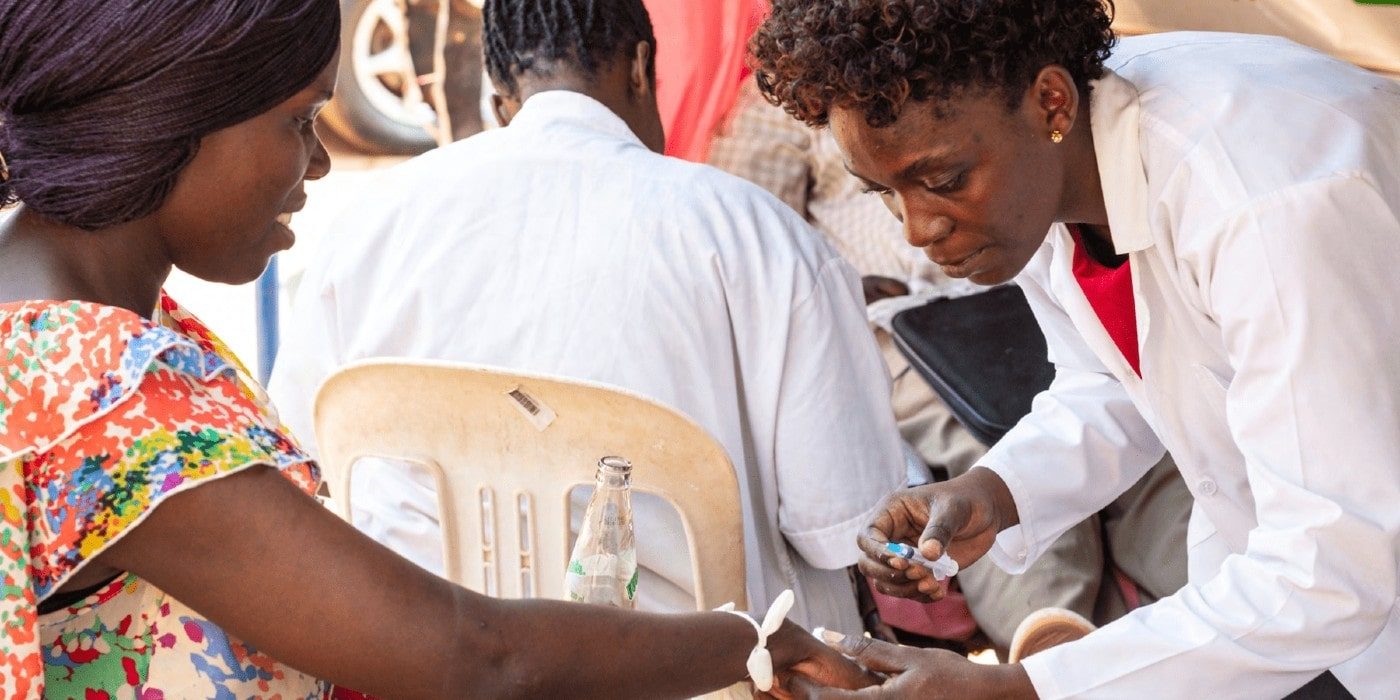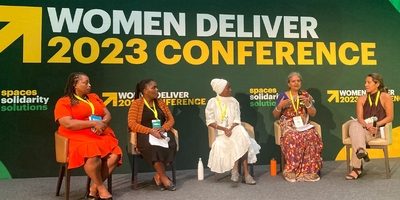
The George Institute joins global gathering to advance gender equality

The Women Deliver 2023 Conference will be held in-person and virtually from July 17–20, 2023, in Kigali, Rwanda. One of the largest multi-sectoral gatherings to advance gender equality, the conference will bring together 6,000 attendees in person and more than 200,000 online, including high-profile speakers such as Nobel Peace Prize Laureate Malala Yousafzai, former Prime Minister of New Zealand Helen Clark, and the President of Rwanda, Paul Kagame.
The George Institute will be joining the conference to share research insights from the Global Women’s Health Program, and raise awareness of the burden of non-communicable diseases (NCDs) on women and girls, which poses a growing threat to hard-fought progress on gender equality. The Institute’s representatives will promote the case for integrating NCD services into maternal and child health programmes, and for better disaggregation and analysis of data to understand how sex and gender affect health.
In 2019, NCDs – including heart disease, diabetes, chronic lung diseases, cancer, and mental health conditions - accounted for approximately 19 million deaths among women worldwide each year.1 NCDs are responsible for more than two-thirds of all deaths among women, often occurring during their most productive years.2
Girls and women living with NCDs experience specific challenges in accessing prevention, early diagnosis, treatment, and care, particularly in low-resource contexts. These include low prioritisation of women’s health within families, limited access to financial resources to cover the costs, women’s and girls’ caring responsibilities, and restrictions on their ability to travel freely, to name a few.
"Gender equity has to be at the heart of health policy, research, and action and we have a long way to go. With actors and allies coming together at Women Deliver 2023, I am looking forward to participating in discussions with individuals and groups with similar interests, intentions, and work," said Misimi Kakoti, Research Officer at The George Institute India.
"I wish to bring back home perspectives, experiences, and relationships that can enrich the work on gender equity and health that I have been involved with and beyond."
The George Institute will be co-hosting the following events at the conference:
'Taking stock towards building a more equitable non-communicable disease ready health care system’ (Tuesday 18 July at 13:30-15:00 Kigali (MH 3.2))
In its capacity as the secretariat for the Taskforce on Women and NCDs, The George Institute for Global Health India will be co-hosting an in-person session with the NCDI Poverty Network and Rwanda NCD Alliance. The event will assess ongoing advocacy efforts, showcase new research, and consider frontline experiences to identify opportunities to build an integrated, equitable and sustainable healthcare system. The audience will convene in discussion groups to explore barriers and opportunities for progress, including strategies to improve collaboration across the gender equity and maternal child health movements. Learn more here.
"The prevention and management of NCDs and promotion of health, particularly in populations facing constraints in awareness, agency, and access to health services, call for the coming together of communities, advocates, governments and industry," said Dr Josyula K. Lakshmi, Senior Research Fellow at The George Institute India, who will be one of the speakers at the event.
"The deliberations on NCDs and women at Women Deliver 2023 promise advances in gender equity and NCD preparedness, especially in low-resource contexts."
'Feminist solutions to address gender inequities in NCD prevention and control’ (Wednesday 19 July at 10:45 to 12:00 Kigali)
Co-hosted with the World Health Organization, this virtual session will convene high-level leaders, grassroots innovators, researchers, and advocates to promote a call-to-action highlighting the gendered barriers to access for NCD prevention, early diagnosis, treatment, and care.
Panellists will highlight how gender impacts NCD risk, access to care and health outcomes, and describe how feminist solutions to addressing NCDs can reduce discrimination, empower generational changemakers and realise global commitments to reduce deaths from NCDs.
The session builds on a side event held on 6 March at the UN Commission on the Status of Women in New York, which saw the First Ladies of Liberia and Gambia highlight the persistent gaps faced by women and girls in accessing NCD-related information, prevention, timely diagnosis, services, and support.
Please note that you must be registered for Women Deliver to attend both events. More information about the conference can be accessed here.
Learn more
The George Institute’s Misimi Kakoti and Josyula K Lakshmi will be attending WD2023 in-person. You can get in touch with them directly to connect on-site:
Misimi Kakoti: MKakoti@georgeinstitute.org.in
- Josyula K Lakshmi: jlakshmi@georgeinstitute.org.in
- The NCD Alliance will be hosting a stall to share information on NCDs and how they impact women and girls, and to gather ideas from participants on how prevention and care of NCDs can be better integrated into the sustainable development response for women. Visit the stall to access resources and learn more about the Global Week for Action on NCDs campaign and how to get involved.
- The Taskforce on Women and NCDs is a network bringing together leading global health organisations from the women’s health and NCD communities to improve women’s health by expanding programs to meet women’s needs across the lifecycle.
- The recording for the CSW 67 side-event, co-hosted by the WHO and the Republics of Liberia and Gambia, focusing on “Gender equity and rights in the prevention and control of NCDs: The role of digital health” can be accessed here.
References
[1] World Health Organization. Cause-specific mortality, 2000-2019. https://www.who.int/data/gho/data/themes/mortality-and-global-health-estimates/ghe-leading-causes-of-death.
[2] Women and NCDS (2023) NCD Alliance. Available at: https://ncdalliance.org/why-ncds/ncds-and-sustainable-development/women…






